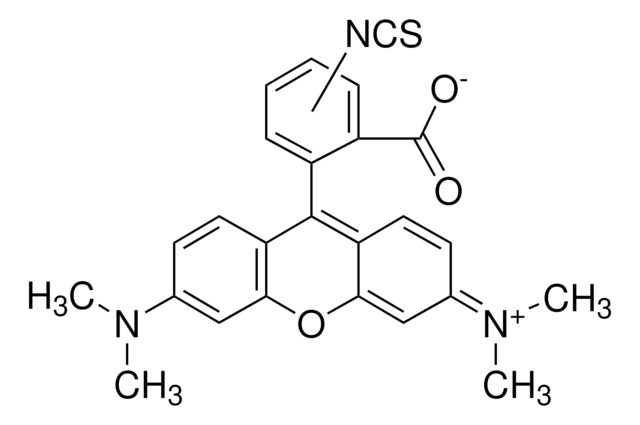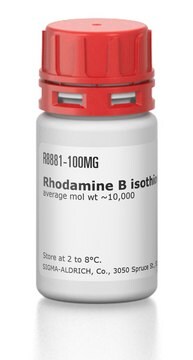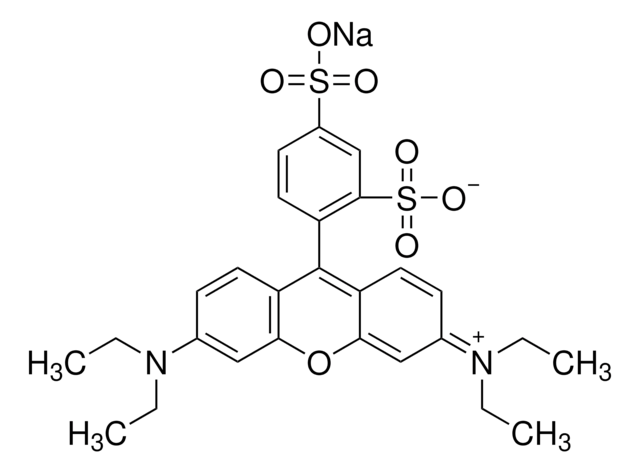T3163
Tetramethylrhodamine isothiocyanate Isomer R
powder
Synonyme(s) :
6-TRITC, Tetramethylrhodamine-6-isothiocyanate
About This Item
Produits recommandés
Description
labeling efficiency with bovine albumin >= 50%
Niveau de qualité
Forme
powder
Composition
Dye content, ≥80%
Solubilité
1 M NH4OH: 10 mg/mL (Faint Red to Very Dark Red to Very Dark Purple solution)
Application(s)
diagnostic assay manufacturing
hematology
histology
Température de stockage
2-8°C
Chaîne SMILES
CN(C)c1ccc2c(OC3=C\C(C=CC3=C2c4cc(ccc4C([O-])=O)N=C=S)=[N+](/C)C)c1
InChI
1S/C25H21N3O3S/c1-27(2)16-6-9-19-22(12-16)31-23-13-17(28(3)4)7-10-20(23)24(19)21-11-15(26-14-32)5-8-18(21)25(29)30/h5-13H,1-4H3
Clé InChI
OBYNJKLOYWCXEP-UHFFFAOYSA-N
Description générale
Application
- TRITC is used to label a wide variety of biomolecules, including immunoglobulins, lectins, nucleic acids, polynucleotides, and polysaccharides for affinity, immuno-, and in situ hybridization, fluorescent probes, and flow cytometry.
- Lectins are TRITC-Iabeled reagents for the affinity staining of sections and cell monolayers to distinguish the sialomucins of salivary glands.
- TRITC-antibodies are used to identify pathogenic amoebae.
- TRITC-oligonucleotides are used in the in-situ hybridization staining of soil microorganisms.
- TRITC-Iabeled reagents have also been used as fluorescent probes of live cells.
- Flow cytometry of TRlTC-Iabeled slime mold cells has been used to study their aggregation behavior.
Faites votre choix parmi les versions les plus récentes :
Déjà en possession de ce produit ?
Retrouvez la documentation relative aux produits que vous avez récemment achetés dans la Bibliothèque de documents.
Les clients ont également consulté
Import Using Xenopus Egg Extracts
Notre équipe de scientifiques dispose d'une expérience dans tous les secteurs de la recherche, notamment en sciences de la vie, science des matériaux, synthèse chimique, chromatographie, analyse et dans de nombreux autres domaines..
Contacter notre Service technique





